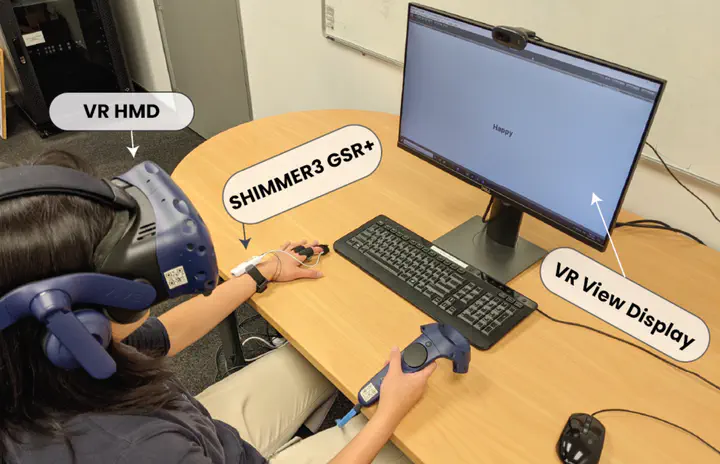Towards Understanding Physiological Responses to Emotional Autobiographical Memory Recall in Mobile VR Scenarios

Abstract
Virtual Reality (VR) is becoming increasingly mobile and ubiquitous but the experience is still rarely tailored to a person’s individual experience and emotion. Autobiographical memories (AM) are better remembered when an event is associated with strong emotional experiences. In this work, we introduce an experimental paradigm in VR to investigate the effect of emotional AM recall on a user’s physiological state when coupled with wearable electrodermal activity (EDA) sensors and integrated pupil trackers. With an objective to benchmark the effect of AM recall on human physiology, we replicated the Autobiographical Memory Test (AMT) in VR which displays positive, negative, and neutral valence words to participants for them to recall self-relevant memories associated with that word. We found that there was a positive effect of AM recall on EDA peak amplitude, EDA peak number, and pupil diameter when comparing with no recall. However, there was no impact on emotional AM recall. Finally, we discuss the limitations and possibilities of leveraging autobiographical memory to create personalized mobile VR experiences when used with wearable physiological sensors.